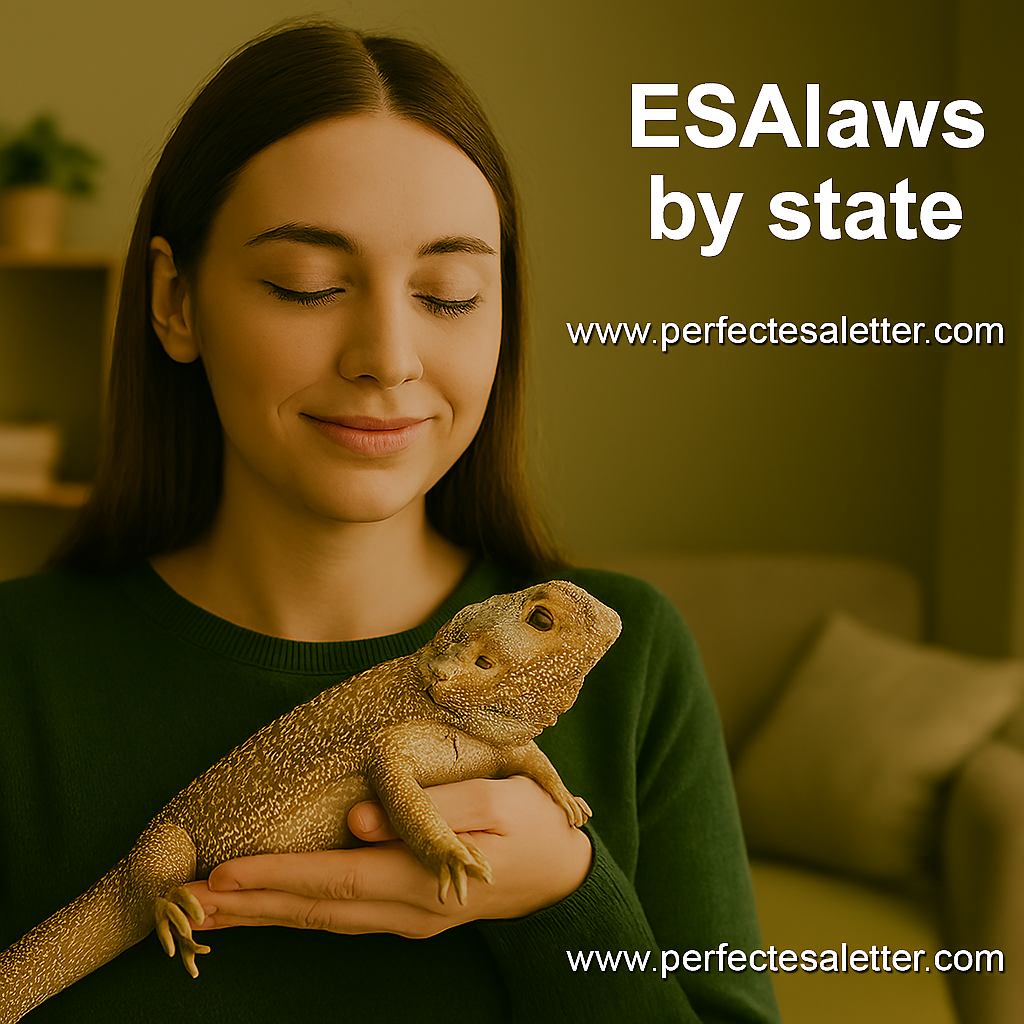ESA-Friendly Hospice Housing: Emotional Support Animal Rights at End-of-Life Care
ESA-Friendly Hospice Housing: Emotional Support Animal Rights at End-of-Life Care
Introduction
Hospice housing provides comfort, dignity, and support for individuals in end-of-life care. For many patients, emotional support animals (ESAs) play a vital role in reducing anxiety, offering companionship, and improving quality of life during this sensitive stage.
Unfortunately, some hospice providers have strict no-pet policies due to health, space, or liability concerns. However, under the Fair Housing Act (FHA), patients and residents are entitled to reasonable ESA accommodations, ensuring they are not separated from the animals that provide them with critical emotional support.
This guide explores ESA-friendly hospice housing, legal rights, and how to secure ESA approval for end-of-life care.
”Get Yours Now!
Don’t wait until a landlord or airline tells you “no pets allowed.” Protect your rights today.
Please fill out this form and our team wil contact you ASAP.
Complete your assessment in minutes , get approved by a licensed professional, and receive your letter within 24 hours.
Legal Rights of ESAs in Hospice Housing
- Fair Housing Act (FHA): Protects patients in residential hospice facilities, ensuring ESA accommodation.
- No Pet Fees: ESA patients are exempt from deposits, pet rent, or service fees.
- Reasonable Accommodation Requirement: Facilities must permit ESAs unless the request poses a direct threat or undue burden.
- Documentation Requirement: A valid ESA letter from a licensed mental health professional (LMHP) is usually required.
These protections apply to inpatient hospice centers, residential hospice homes, and palliative housing facilities.
Why ESAs Are Important in Hospice Care
- Emotional Comfort: ESAs reduce loneliness and provide unconditional companionship.
- Stress Reduction: Interaction with ESAs lowers anxiety and depression levels.
- Routine & Normalcy: Caring for an ESA offers patients a sense of responsibility and structure.
- Improved Family Environment: ESAs create a warmer, more homelike hospice setting.
- Dignity & Quality of Life: Patients often feel more respected and cared for when allowed to stay with their ESA.
Challenges of ESA Accommodation in Hospice Housing
- Health & Safety Concerns: Some patients may have allergies or compromised immune systems.
- Facility Limitations: Limited space and medical equipment can complicate ESA housing.
- Staff Unfamiliarity with ESA Laws: Administrators may not know FHA requirements.
- Emotional Family Dynamics: Family members may have differing opinions about ESA presence in hospice housing.
Steps to Secure ESA Approval in Hospice Housing
1. Obtain a Valid ESA Letter
- Must be from a licensed mental health professional, physician, or primary care provider.
- Should confirm the need for an ESA to support emotional health in end-of-life care.
- Must include date, provider license number, and signature.
2. Submit an ESA Accommodation Request
- Address the hospice facility administrator or care coordinator.
- Attach the ESA letter and cite Fair Housing Act protections.
Sample ESA Request for Hospice Housing:
Subject: ESA Accommodation Request – [Patient Name]
Dear [Administrator],
I am requesting a reasonable accommodation for my emotional support animal, [ESA Name], under the Fair Housing Act. Attached is a valid ESA letter from my licensed healthcare provider.
Having my ESA is essential for my emotional and mental well-being during hospice care. I assure you that my ESA will be properly cared for and will not disrupt other residents or staff.
Sincerely,
[Patient/Family Representative Name]
[Contact Information]
Attachment: ESA Letter
3. Provide an ESA Care Plan
- Identify who will assist in feeding, walking, or maintaining the ESA.
- Reassures facility staff that the ESA will not cause an undue burden.
4. Request Written Approval
- Ensure facility provides a written agreement confirming ESA accommodation.
Best Practices for ESA Integration in Hospice Housing
- Clear Communication
- Speak with facility staff early about ESA needs.
- Shared Space Management
- Respect common areas, ensuring ESA does not disturb other patients.
- Caregiver Support
- Assign a family member, volunteer, or staff liaison to help with ESA care.
- Behavioral Standards
- Ensure ESA is calm, well-behaved, and properly trained for a medical environment.
- Emergency Planning
- Have a backup caregiver if the patient becomes unable to provide direct ESA care.
Case Example
Scenario:
Henry, a patient in hospice housing, relied on his cat for emotional comfort. The facility initially denied his request due to a “no pets” policy.
Action:
Henry’s family submitted a formal ESA request with a licensed ESA letter. They also provided a care plan outlining feeding and cleaning responsibilities.
Outcome:
The facility approved the accommodation. Henry spent his final months in comfort with his ESA by his side, improving his emotional well-being and providing peace to his family.
Common Misunderstandings in Hospice ESA Rights
| Misunderstanding | Reality |
|---|---|
| Hospice facilities can deny ESAs due to no-pet rules | FHA requires reasonable ESA accommodations |
| Patients must pay pet fees | ESA patients are exempt from deposits or fees |
| Only service animals are allowed | ESAs are legally protected under FHA in housing contexts |
| ESA approval requires medical records | Only an ESA letter is needed |
Tips for Families Advocating for ESA in Hospice Housing
- Be Proactive: Start ESA requests early in hospice planning.
- Stay Calm & Professional: Approach administrators respectfully.
- Provide Documentation: Always include ESA letter and care plan.
- Educate Staff: Share resources about FHA ESA protections.
- Seek Legal Support if Denied: Contact a fair housing advocate or legal aid hotline if a facility wrongfully denies ESA accommodation.
Conclusion
ESA-friendly hospice housing plays a critical role in ensuring patients experience comfort, dignity, and emotional well-being during end-of-life care. By understanding legal protections under the FHA, obtaining a valid ESA letter, and submitting a formal accommodation request with a care plan, patients and families can ensure that emotional support animals remain by their side.
Hospice housing that embraces ESA accommodations fosters compassion, humanity, and improved quality of life, allowing patients to spend their final days with the comfort and love of their emotional support animals.
”Get Yours Now!
Don’t wait until a landlord or airline tells you “no pets allowed.” Protect your rights today.
Please fill out this form and our team wil contact you ASAP.
Complete your assessment in minutes , get approved by a licensed professional, and receive your letter within 24 hours.










